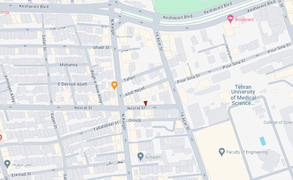Developing Framework and Strategies for Capacity Building to Apply Evidence-Informed Health Policy-Making in Iran: Mixed Methods Study of SAHSHA Project
SASHA, which stands for “evidence-informed health policy-making (EIHP)” in Persian, is a national project to draw a roadmap for strengthening EIHP in Iran. As a part of SASHA, this research aimed to develop evidence-based and context-aware policy options for increasing the capacity of decision-makers to apply EIHP in Iran.

Abstract
Background: SASHA, which stands for “evidence-informed health policy-making (EIHP)” in Persian, is a national project to draw a roadmap for strengthening EIHP in Iran. As a part of SASHA, this research aimed to develop evidence-based and context-aware policy options for increasing the capacity of decision-makers to apply EIHP in Iran.
Methods: This was a qualitative study, which was informed by a literature review of pull efforts’ capacity building programs. Based on the review, we developed policy options and validated them through an expert panel that involved twelve experts. Data were analyzed using a content analysis method.
Results: We extracted data from 11 articles. The objectives of capacity building programs were: single-skill development, personal/professional development, and organizational development. According to these objectives, the contents and training methods of the programs vary. Capacity building programs have shown positive impacts on individual knowledge/attitudes to use EIHP. However, the impacts of programs at the organizational or the health system level remain under-researched. We followed several threads from the literature review through to the expert panel that included training the management team, instead of training managers, training for problem-solving skills, and designing tailored programs. Barriers of capacity building for EIHP regard the context of the health system (weak accountability and the widespread conflict of interest) and healthcare organizational structures (decision support systems, knowledge management infrastructures, and lack of management team). Experts suggested interventions on the barriers, particularly on resolving the conflict of interests before launching new programs. A proposed framework to increase the capacity of health policy-makers incorporates strategies at three levels: capacity building program, organizational structure, and health system context.
Conclusion: To prepare the context of Iranian healthcare organizations for capacity building programs, the conflict of interests needs to be resolved, decision-makers should be made more accountable, and healthcare organizations need to provide more knowledge management infrastructures and decision support systems.
Keywords: Evidence-Informed Policy-Making, Health Policy, Capacity Building Programs, Iran
Copyright: © 2021 The Author(s); Published by Kerman University of Medical Sciences. This is an open-access article distributed under the terms of the Creative Commons Attribution License (https://creativecommons.org/licenses/by/4.0), which permits unrestricted use, distribution, and reproduction in any medium, provided the original work is properly cited.
Citation: Mahdavi M, Sajjadi Khasraghi J, Sajadi HS, et al. Developing framework and strategies for capacity building to apply evidence-informed health policy-making in Iran: mixed methods study of SAHSHA Project. Int J Health Policy Manag. 2021;x(x):x–x. doi:10.34172/ijhpm.2021.142



ارسال نظر